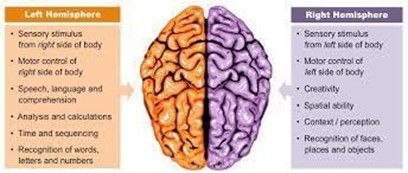A nurse is teaching a client who has sickle cell disease about preventing a sickle cell crisis. Which of the following statements should the nurse make?
"You should avoid temperature extremes."
"You should engage in high-impact exercise twice per week."
"You should drink at least 2 liters of fluids each day."
"You should not receive the influenza vaccine."
The Correct Answer is A
Choice A rationale:
Avoiding temperature extremes can help prevent triggering a sickle cell crisis. Cold temperatures can cause blood vessels to constrict, leading to poor blood flow and increased risk of cell sickling.
Choice B rationale:
Engaging in high-impact exercise might not be recommended, as vigorous exercise can increase the risk of dehydration and oxygen deprivation, potentially triggering a crisis.
Choice C rationale:
Staying well-hydrated by drinking fluids is important, but temperature regulation is a key factor in preventing sickle cell crises.
Choice D rationale:
Receiving the influenza vaccine is recommended for individuals with sickle cell disease to reduce the risk of infections that could trigger a crisis. This statement is incorrect; the client should receive the influenza vaccine unless contraindicated.
Nursing Test Bank
Naxlex Comprehensive Predictor Exams
Related Questions
Correct Answer is C
Explanation
Choice A rationale:
Aphasia, or difficulty with language, is more commonly associated with left hemispheric stroke.
Choice B rationale:
Depression can be a common psychological reaction following stroke, but it is not a specific finding associated with right hemispheric stroke.
Choice C rationale:
Right hemispheric stroke can lead to loss of depth perception and spatial awareness due to its impact on the visual-spatial processing areas of the brain.
Choice D rationale:
Slow, cautious behavior is a common finding after stroke regardless of the affected hemisphere.

Correct Answer is A
Explanation
Choice A rationale:
Assessing for the client's immediate safety is the first priority in crisis intervention.
Choice B rationale:
Identifying social support is important but not the primary action in this situation.
Choice C rationale:
Instructing the client about coping skills is important, but immediate safety takes precedence.
Choice D rationale:
Exploring the client's perception of the event is valuable, but assessing for suicidality is more urgent.
Whether you are a student looking to ace your exams or a practicing nurse seeking to enhance your expertise , our nursing education contents will empower you with the confidence and competence to make a difference in the lives of patients and become a respected leader in the healthcare field.
Visit Naxlex, invest in your future and unlock endless possibilities with our unparalleled nursing education contents today
Report Wrong Answer on the Current Question
Do you disagree with the answer? If yes, what is your expected answer? Explain.
Kindly be descriptive with the issue you are facing.
